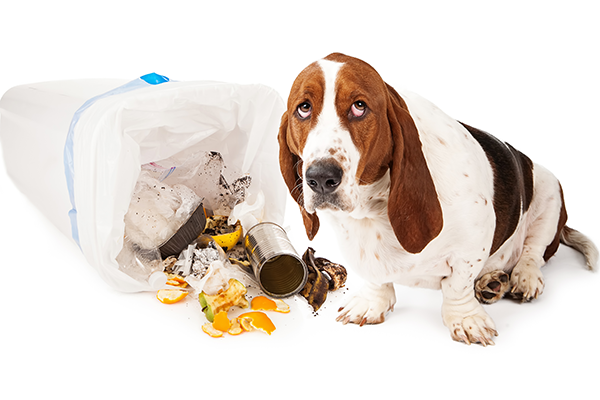Pet-Proofing Your Home

Is your home pet-proof? Is it free of hazards that could harm your beloved pet? Most of us are familiar with the concept of baby-proofing, but pet-proofing is just as important.
Your home has many things that are perfectly safe for people, but risky for pets. The ASPCA's Animal Poison Control Center takes about 150,000 calls a year about pet exposures to toxic substances that are commonly found in homes.
If you don’t know where to start with pet-proofing your home, read on for some helpful tips.
Dangers in the Garage
Your garage is a dangerous place for pets. Most people keep at least a few things in the garage that are toxic: antifreeze, gasoline, oils. Sharp tools and lawnmowers also present risks.
The best policy is to keep pets out of the garage, but if this isn’t possible, use high storage shelves for all harmful substances. Place sharp tools and equipment in places that are inaccessible to pets.
Cords and Wires
In your main living spaces, cords and wires from lamps, electronics, and even holiday decor can tempt your pets to chew. Cords are a risk for choking, swallowing, and becoming entangled. Tie up cords or use specially-made protectors that act as a barrier to your pet.
Harmful Foods
It’s easy to forget that yummy human foods can be a real threat to pets. Keep your animals away from all of the following foods - and make sure storage containers can’t be chewed or pried open.
Harmful foods include: coffee beans/grounds, fats, tea, chocolate, avocado, alcohol, yeast, nuts, onions, garlic, and artificial sweeteners.
Household Cleaners and Solvents
Household cleaners in the kitchen, bathroom, hall closet, or anywhere else in the house should be up high and completely inaccessible to animals. Many pets can slide a toenail into the perfect spot for pulling a cabinet open!
Toxicity-related vomiting and diarrhea are two of the most common causes for emergency vet calls. Unfortunately, many of these common causes of digestive distress are easily preventable by keeping household cleaners in a safe place.
In the Medicine Cabinet
Your medicine cabinet is full of things that are harmful to cats and dogs. Ointments, pain relievers, rubbing alcohol, petroleum jelly, hydrogen peroxide, and even toothpaste can be dangerous, depending on the amount consumed.
As you scan your bathroom for risky spots, keep an eye out for places that have lotions, soaps, shampoos, air fresheners, and cosmetics. These can all hurt pets too.
Toys and Games
When you have children or grandchildren, it can be hard to keep the floor free of every Lego. But toys and games contain all kinds of small parts that are choking hazards for animals. Keep an eye on pets during playtime.
Stray Socks and Shoes
Some pets - dogs especially - just can’t resist gnawing on your socks, shoes and clothing. If they choke on pieces of fabric, leather, or plastic, it can cause severe gastrointestinal distress. Keep laundry away from pets and store shoes behind a closed door.
Don’t Forget the Trash!
Finally, don’t overlook the trash as you pet-proof your home. Ensure all trash is kept inside a container with a tight, locking lid. One common solution is to use a latching trash can that is built into a kitchen drawer or pantry, which can only be released with human fingers.
If your pet has already been exposed to something harmful in your home: Call the ASPCA Animal Poison Control Center (APCC) hotline at 888-426-4435. It’s available 24/7, 365 days a year. The organization charges a consultation fee.
Click here to contact Academy Animal Hospital or call (317) 881-3125 and arrange to see a veterinarian as soon as possible. Your vet can provide specific advice for your pet’s situation.
